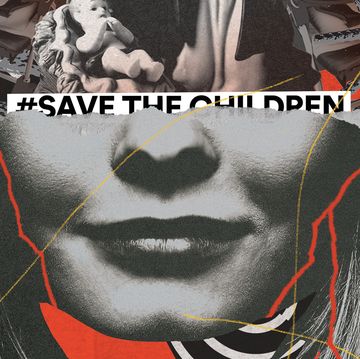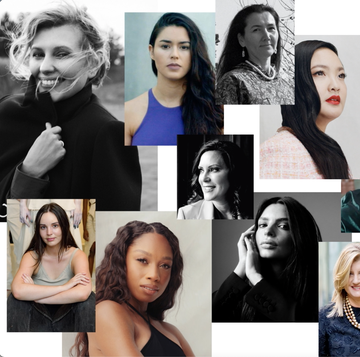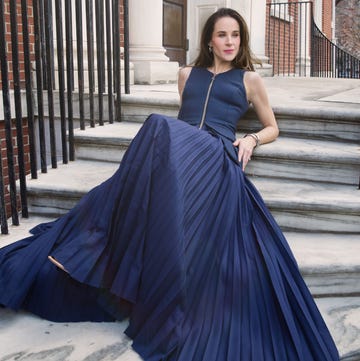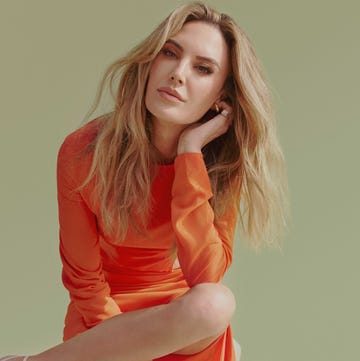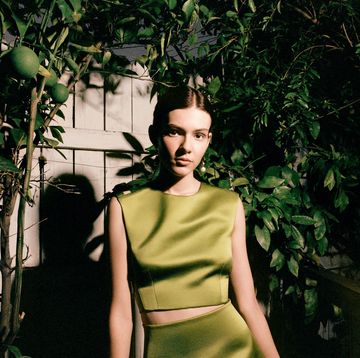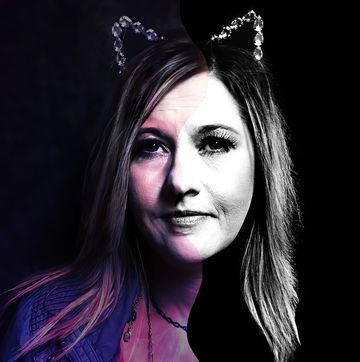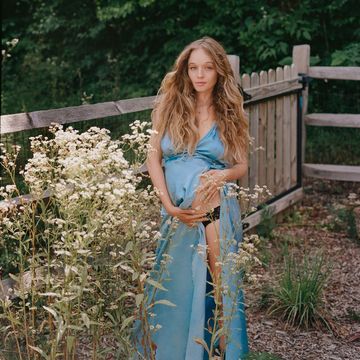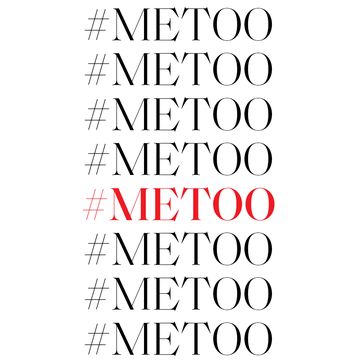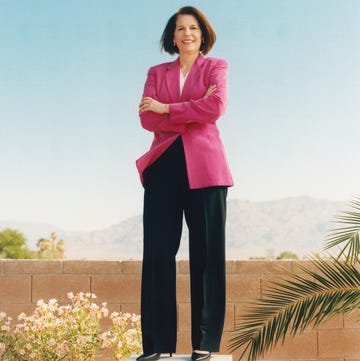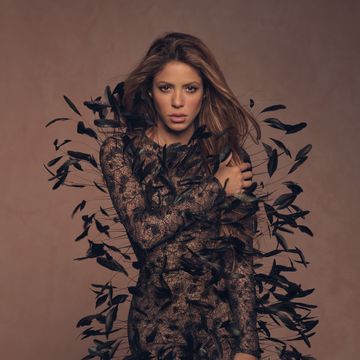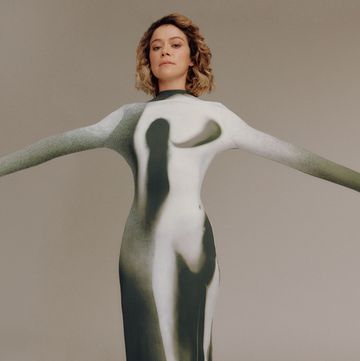One evening in late August, I was discussing pandemic parenting and school opening plans with another mom from a safe distance at a pool in Denver. As we chatted, I thought to myself that she seemed like the kind of mother who had it all together—cheery, beautiful, chic in her Tory Burch one-piece, and seemingly unfazed by whining toddlers or the uncertainty of living and mothering in the time of COVID-19. As she turned to leave, she reached for the items she’d nearly left behind: “Can’t forget the two most important things during the pandemic: wine and a mask,” she said with a laugh.
Now more and more women seem to agree. Wine has long been a staple in many moms’ parenting tool kits, but women are leaning on it more than ever this year. “All of a sudden, we’re full-time housekeepers, teachers, and short-order cooks as well as parents. And we’re also the constant bearers of bad news to our kids: First, spring break is canceled; then school, then playdates,” says a 40-year-old mom in Denver. “At a time when there’s not much to look forward to, wine is [a light] at the end of the day.”
Isolation, uncertainty, overwhelming domestic duties, health concerns, and financial worries have created the perfect storm for a mental health crisis. By late June, 40 percent of American adults reported struggling with mental health or substance use, according to the Centers for Disease Control and Prevention (CDC). Women have been disproportionately impacted, taking on a greater share of parenting, teaching, and household duties, and leaving the workforce at four times the rate of men. (In September alone, 865,000 women dropped out of the workforce, compared to 216,000 men, according to the U.S. Bureau of Labor Statistics.) Thirty-six percent of women experience anxiety, and women are also twice as likely as men to experience severe stress and major depression.
No wonder, then, that we are turning to alcohol to cope. A study published in JAMA Network Open in September found that from 2019 to 2020, reported episodes of heavy drinking among women (at least four drinks in one day) increased by 41 percent. Women may also be more likely than men to deal with COVID-related stress by drinking, says a study published in November 2020 in Addictive Behaviors. “Alcohol is a quick decompression tool, and it’s self-medication for depression, anxiety, overwork,” says Ann Dowsett Johnston, the author of Drink: The Intimate Relationship Between Women and Alcohol. “Women today are overwhelmed, and it’s all about coping.”
But COVID is just the tip of the iceberg. Over the past 20 years, American women have been drinking—and dying from it—more than ever before. Between 2002 and 2013, the number of women who have four or more drinks within a day on a weekly basis rose nearly 58 percent. A January 2020 study by the National Institute on Alcohol Abuse and Alcoholism (NIAAA) found that alcohol-related deaths among women in the U.S. rose 85 percent between 1999 and 2017, with the largest increase among non-Hispanic white women.
Despite these worrisome realities, moms are bombarded by messages that booze—a more than $252-billion-dollar industry in the U.S.—is indispensable to our survival as parents. Trader Joe’s stores have been known to market wine as a back-to-school supply. Hoda Kotb and Jenna Bush Hager sipped vino most mornings on the fourth hour of Today. “You see alcohol as this ubiquitous thing that is no big deal, right?” says Laura McKowen, an author and sober influencer. “It looks like what bonding is, what fun is, what connection looks like—and that’s what we all want.”
I get it; the messaging was alluring to me, too. In 2017, I had a baby and was plunged into the alcohol-obsessed world of motherhood—wineglasses with “Mommy Juice” emblazoned on them; playdates with moms discreetly sipping cocktails in to-go cups. Once, while nursing my colicky three-month-old, a woman offered up the advice that seemed to be screaming at me everywhere: “Wine makes motherhood much easier.”
We cling to the idea that a glass or two of wine a day is harmless, even though new research suggests otherwise. “There is no benefit for alcohol ever in women,” says David Nutt, MD, PhD, author of Drink? The New Science of Alcohol and Your Health, out in December. Just one to two drinks a day has been linked to a 25 to 50 percent increased risk of breast cancer; in June 2020, the American Cancer Society released a new recommendation to simply avoid alcohol. Excessive drinking increases one’s risk for anxiety, depression, suicide, seven different types of cancer, stroke, and heart disease. Further, using alcohol to cope may make you dependent. “As soon as you start drinking to relieve the stress of your marriage or adjusting to motherhood, it becomes more addictive neurochemically,” says author and alcohol-free influencer Annie Grace.
In the end, booze might sabotage the very thing we’re chasing—relaxation. While alcohol calms us initially by activating GABA (a neurotransmitter that helps the body relax), dopamine, and endorphins in the brain, as the blood alcohol level starts to decline, it triggers the body’s stress response system—prompting an emotional hangover that can last hours to several days, and making us potentially more anxious than we were before that glass of wine.
In addition, excessive drinking over time can damage the body’s natural production of GABA and dopamine, which may increase your baseline level of anxiety; it may also spur a general state of malaise and impact your ability to enjoy life. New research indicates that women may be more susceptible to alcohol’s anxiety-provoking effects than men, says George Koob, PhD, director of the NIAAA. “[The feeling you get from alcohol] is artificial; it’s chemical, so what’s not happening is authentic conversation, real connection,” McKowen says. True connection, she adds, is being seen, known, and accepted for who we truly are, without a crutch.
As a society, we’re fast to reach for quick fixes, and often unwilling to do the hard work of meeting life—and its discomforts—head on. But it’s time we faced the truth: “Mommy wine culture is a lie and it’s killing us and making us more miserable. More anxious. More depressed. More isolated,” McKowen wrote in a September Instagram post. “You don’t need the wine, mama. You need connection. Support. Tools. Laughter. Love.”
This article originally appeared in the December 2020 issue.
Kelley Manley is a freelance journalist whose work has appeared in the New York Times, Vogue, Marie Claire, Departures, and other national and regional publications. Follow her on Instagram @KelleyMcMillanManley.

